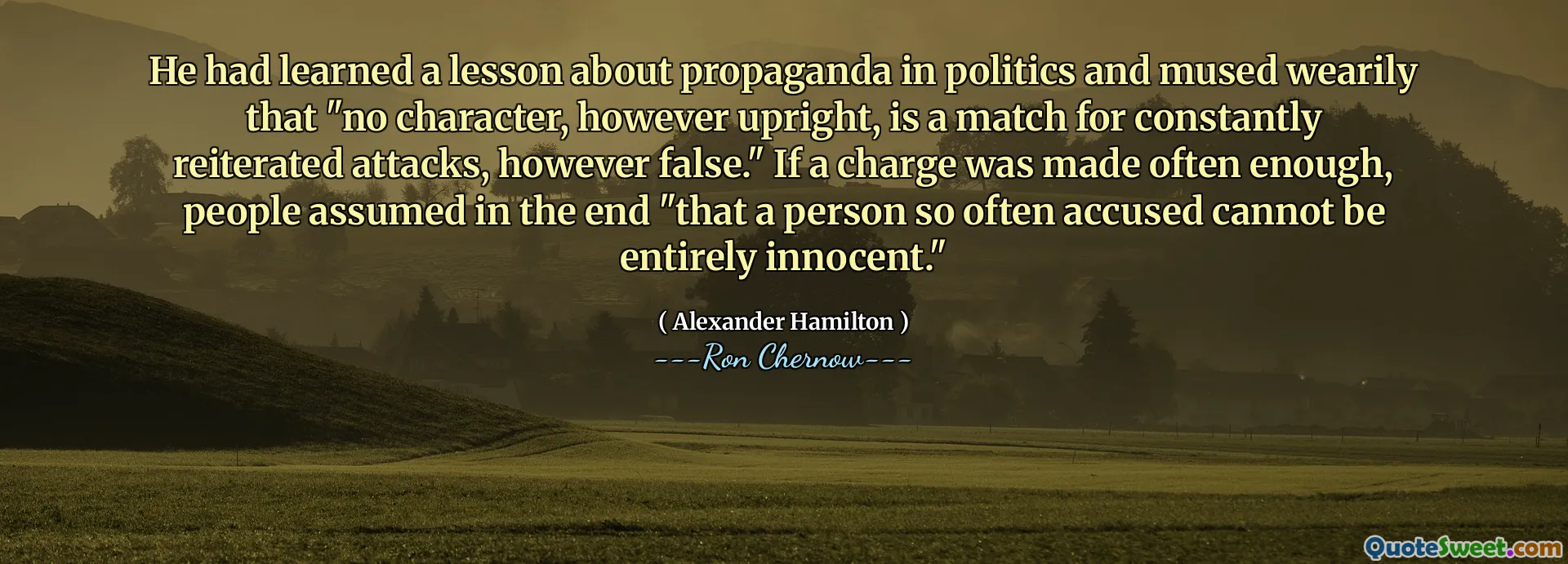
He had learned a lesson about propaganda in politics and mused wearily that "no character, however upright, is a match for constantly reiterated attacks, however false." If a charge was made often enough, people assumed in the end "that a person so often accused cannot be entirely innocent."
This quote underscores the powerful and often insidious nature of propaganda and repeated accusations in the realm of politics. It highlights a fundamental truth about human psychology: when an allegation or critique is echoed persistently, it begins to shape public perception, regardless of its truthfulness. The notion that an individual’s character can be eroded simply through sustained attack is particularly relevant in the age of mass media, social platforms, and political campaigns, where narratives can be manipulated and reinforced repeatedly to sway opinions. The cliche of "trial by repeat" is vividly illustrated here—truth becomes secondary to the frequency and consistency of the message delivered. It also raises ethical concerns about the responsibility of both the media and political actors in shaping discourse; once falsehoods are ingrained in collective consciousness, reversing this damage becomes quite challenging. The quote invites us to reflect on the importance of integrity, critical thinking, and the need for vigilance against propaganda’s subtle but profound influence. It calls for awareness that public opinion can be prejudiced not just by outright lies but by the persistent repetition of partial truths or distortions. Recognizing this pattern allows individuals and societies to challenge the narratives and seek a more balanced, fair assessment of character and truth. Overall, the quote is a sobering reminder of how easily reputation, integrity, and justice can be compromised when the power of repeated assertions is exploited, emphasizing the necessity of truth and sincerity in discourse.











